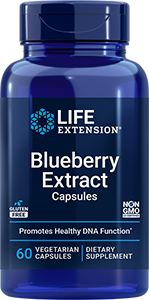| Rheumatoid arthritis (RA) is a degenerative autoimmune disease in which the joints are attacked by an abnormal immune response and slowly destroyed. RA is much less common than osteoarthritis (OA), occurring in about 1 percent of the population and affecting women two to three times more frequently than men. The first symptoms typically appear between the ages of 25 and 50, although it can occur at any age, even childhood (juvenile RA). Unlike OA, RA is a systemic disease. It can affect organ systems throughout the body, not just the joints. Problems associated with RA include inflamed blood vessels, heart attack, neuropathy, lung complications, and others. As with any disease, it is important to regularly track your progress and begin treatment early. People who suffer from arthritis should consider a cytokine profile and C-reactive protein blood test to measure the levels of inflammation throughout their body. These initial measurements provide a baseline for tracking disease therapy. The following may help provide nutritional support to rheumatoid arthritis patients: - EPA and DHA—2100 milligrams (mg) EPA and 1500 mg DHA daily
- GLA—900 to 1800 mg daily
- Boswellic acid—300 mg daily
- Curcumin—900 mg daily, with 5 mg Bioperine® piperine
- Ginger—60 mg daily
- Bioflavonoids, including nobiletin—300 mg daily
- Nettle leaf extract—375 to 500 mg daily
- SAMe—400 to 1200 mg daily
- Glucosamine—500 mg daily
- Green tea extract—725 mg green tea powder daily, yielding at least 246 mg of EGCG
- Vitamin C—1 to 3 grams (g) daily
- Vitamin E—400 international units (IU) daily (with at least 200 mg gamma-tocopherol)
- N-acetylcysteine—600 mg daily
- DHEA—15 to 75 mg daily, with blood testing after 3 to 6 weeks to determine optimal levels
| Life Extension Vacations®
Fourth Annual Fountain of Life Cruise
November 6-13, 2010 7 night Eastern Caribbean Cruise, round trip from Fort Lauderdale, Florida Ports of call: Charlotte Amalie, St Thomas;
Philipsburg, St Maarten; Nassau, Bahamas 
Sailing on the magnificent Royal Caribbean's OASIS of the SEASSM Come cruise with us and network with Life Extension members, attend anti-aging seminars, see breathtaking scenery, relax and enjoy glorious days of sailing with 24-hour dining and non-stop entertainment aboard the most innovative and imaginative ship yet, Oasis of the SeasSM. Invite your family and friends to join us and get ready for a unique and luxurious learning experience with the Life Extension organization, a global authority on nutrition, health and wellness. You'll enjoy - An architectural marvel at sea! Oasis of the SeasSM features a collection of amazing experiences never before imagined at sea
- Amenities never seen afloat before!
- Presentations highlighting the latest in integrative therapies and anti-aging research
- Previews on cutting-edge anti-aging products
- One-on-one personal advisor appointments with Life Extension Consultants
- Free 6-month Life Extension membership for all attendees
- NEW! Health screening onboard!
- And much more to help in your quest for optimal health!
Past Life Extension cruisers: Save $75 per person on the 2010 Life Extension Cruise. *Please note that Life Extension Vacations is not affiliated with or a part of the Life Extension Foundation®, which supports anti-aging research, or the Life Extension Foundation Buyers Club. |















